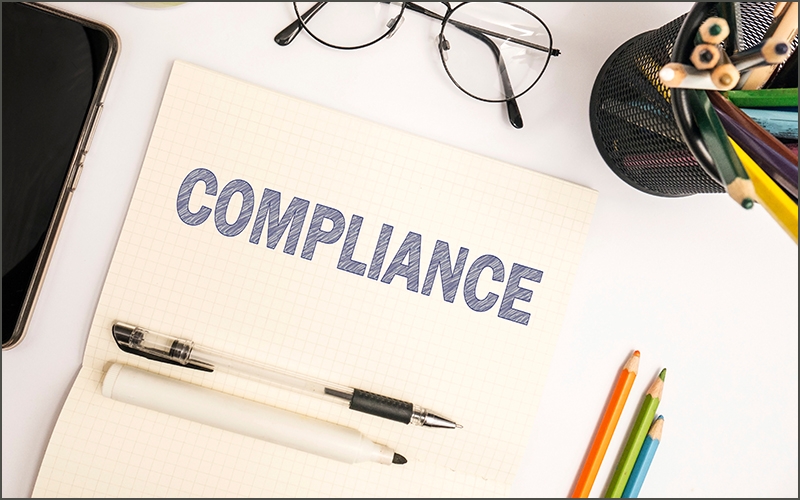CFPB Advisory Opinion on Coverage of Fair Lending Laws
Posted by Ben Shuey on June 7, 2022

The Consumer Financial Protection Bureau (CFPB) issued an advisory opinion that confirms that the Equal Credit Opportunity Act (ECOA) bars lenders from discriminating against customers after they have received a loan, not just during the application process.
ECOA bans credit discrimination on the basis of race, color, religion, national origin, sex, marital status, and age. It also protects those who are receiving money from any public assistance program or exercising their rights under certain consumer protection laws. The CFPB issued Monday’s advisory opinion and accompanying analysis to clarify that ECOA protects people from discrimination in all aspects of a credit arrangement. The advisory opinion is consistent with a recent legal brief filed by the CFPB, the Federal Trade Commission, the Federal Reserve Board of Governors, and the U.S. Department of Justice.
Among other things, the advisory opinion states that ECOA:
- Continues to protect borrowers after they have applied for and received credit: Lenders are prohibited from discriminating against borrowers with existing credit. For example, ECOA prohibits lenders from lowering the credit limit of certain borrowers’ accounts or subjecting certain borrowers to more aggressive collections practices on a prohibited basis, such as race.
- Requires lenders to provide “adverse action notices” to borrowers with existing credit: Adverse action notices explain why an unfavorable decision was made against a borrower. Credit applicants and borrowers receive these notices for reasons including that credit was denied, an existing account was terminated, or an account’s terms were unfavorably changed. “Adverse action notices” discourage discrimination, and they help applicants and borrowers learn the reasons for creditors’ decisions.
Question of the Week
Q. If we receive a garnishment order for the account of Joe Smith, and Jane Smith is a joint owner on the account, must we garnish this account even though we know that it may contain Jane’s money too?
A. Yes, you would have to garnish the account. It is easy to feel sorry for the joint owner but remember that joint responsibility goes along with being a joint owner on an account.
Related Links
RCW 6.27.080
ORS 18.605
IDS 11-703
Compliance Alerts
Consumer Financial Protection Bureau
Protecting Servicemembers from Abuses of the Military Allotment System: The Bureau issued a blog post detailing the CFPB and Department of Defense (DoD) measures to monitor companies for abuses of the military allotment system. The military allotment system dates back to the Civil War as a tool to help military personnel make automatic recurring payments for housing or to family members directly from their paychecks, especially when they were deployed away from home. Instead of a servicemember benefit, some lenders treat the allotment system as a means of prioritizing repayment of that lender’s loan over the servicemember’s payments of other expenses. Lenders ensure they get paid before servicemembers’ paychecks are even deposited into their bank accounts. When allotments are used for bill payment, servicemembers can’t choose the order in which to pay higher priority bills. Allotments have been front and center in many of the CFPB’s military consumer protection lawsuits where lenders either required repayment by allotment, hid junk fees in the pay-by-allotment process, or engaged in deceptive marketing and lending practices associated with allotments. In these actions and others impacting servicemembers, the CFPB has recovered more than $173 million for thousands of military consumers.
CFPB Diversity, Equity, Inclusion, and Accessibility Strategic Plan FY 2022-FY 2026: The Diversity, Equity, Inclusion, and Accessibility (DEIA) Strategic Plan covers the period of FY 2022-2026. The Plan guides CFPB’s efforts in promoting diversity, equity, inclusion, and accessibility in its workforce, supplier diversity, and work to promote diversity and inclusion in Financial Services. The Plan centers around six principal DEIA goals and identifies goals and actions the Bureau seeks to advance.
Federal Deposit Insurance Corporation
Community Reinvestment Act – Proposed Rule: The Board of Governors of the Federal Reserve System (Board), the Federal Deposit Insurance Corporation (FDIC), and the Office of the Comptroller of the Currency (OCC) propose to amend their regulations implementing the Community Reinvestment Act of 1977 (CRA) to update how CRA activities qualify for consideration, where CRA activities are considered, and how CRA activities are evaluated.
Federal Housing Finance Agency
Final Rule Imposes Requirement for Annual Capital Plans: The Federal Housing Finance Agency (FHFA or the Agency) is adopting a final rule (final rule) that supplements the FHFA Enterprise Regulatory Capital Framework (ERCF) rule by requiring the Federal National Mortgage Association (Fannie Mae) and the Federal Home Loan Mortgage Corporation (Freddie Mac, and with Fannie Mae, each an Enterprise) to submit annual capital plans to FHFA and provide prior notice for certain capital actions. The final rule incorporates the stress capital buffer determination from the ERCF into the capital planning process. The requirements in the final rule are consistent with the regulatory framework for capital planning for large bank holding companies.
National Credit Union Administration
Federally Insured Credit Union Use of Distributed Ledger Technologies: The NCUA supports initiatives by federally insured credit unions to better serve their members. The rapid emergence
Office of Foreign Assets Control
Notice of OFAC Sanctions Actions: The U.S. Department of the Treasury’s Office of Foreign Assets Control (OFAC) is publishing the names of one entity that has been placed on OFAC’s Specially Designated Nationals and Blocked Persons List based on OFAC’s determination that one or more applicable legal criteria were satisfied. All property and interests in property subject to U.S. jurisdiction of this entity is blocked, and U.S. persons are generally prohibited from engaging in transactions with it. Additionally, OFAC is publishing updates to the identifying information of one entity currently included on the SDN List. All property and interests in property subject to U.S. jurisdiction of this entity remains blocked, and U.S. persons are generally prohibited from engaging in transactions with it.
Questions? Contact the Compliance Hotline: 1.800.546.4465; [email protected].
Posted in Compliance Resources.





















